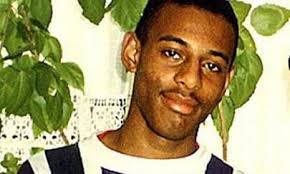The Legacy of Stephen Lawrence: A Fight for Justice

Introduction
The murder of Stephen Lawrence in 1993 marked a pivotal moment in the United Kingdom’s approach to racial discrimination and policing. As a Black British teenager, Stephen’s brutal killing in Eltham, South London, and the subsequent investigation revealed deeply ingrained issues within law enforcement and society. The case not only raised awareness about racism in the UK but also ignited widespread calls for reform in the criminal justice system.
The Events of 1993
Stephen Lawrence, an 18-year-old aspiring architect, was fatally stabbed on the evening of April 22, 1993, while waiting for a bus with his friend. The attack, which was racially motivated, saw Stephen confronted by a gang of white youths who launched a vicious assault. Despite immediate reports to the police, the subsequent investigation was plagued by mishandling and a lack of urgency, leading to considerable public outcry and disappointment.
Impact and Systemic Failures
The investigation’s failures were highlighted in a landmark public inquiry led by Sir William Macpherson in 1999, which concluded that the police were institutionally racist. This assertion shocked the nation and necessitated a reassessment of policing practices throughout the UK. In March 1999, the Macpherson Report made over 70 recommendations aimed at improving policing, race relations, and the administration of justice.
Recent Developments
In 2022, the 29th anniversary of Stephen’s death, the British public and many organisations reflected on his legacy and the ongoing fight against racism. Activists and the Lawrence family continued to advocate for justice and awareness regarding racial issues in Britain, emphasising that while progress had been made, there was still a considerable deficit in ensuring equality and accountability in the justice system. Reports indicated that issues surrounding stop-and-search tactics and racial profiling remain contentious topics within policing.
Conclusion
The legacy of Stephen Lawrence is one that embodies both tragedy and a catalyst for change. The case has propelled national discussions around race and justice, but it has also illuminated the path that remains ahead in achieving true equality. As the UK continues to tackle these deep-rooted issues, revisiting Stephen’s story remains vital in pushing for reform and fostering social cohesion. With recent movements like Black Lives Matter reinvigorating the conversation globally, Stephen Lawrence’s memory continues to inspire activists striving for a fair and just society.









